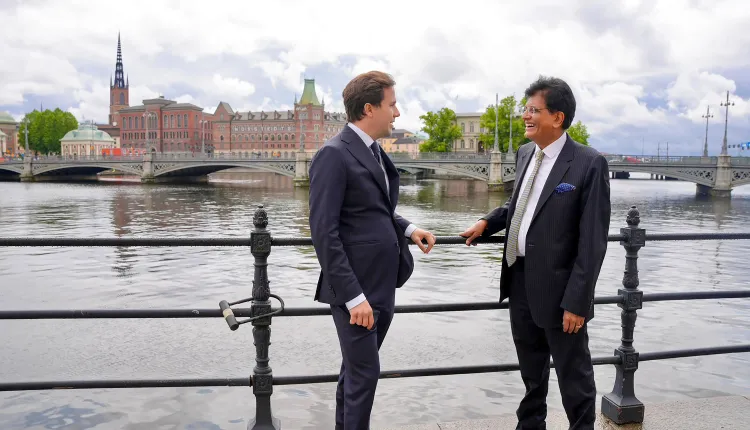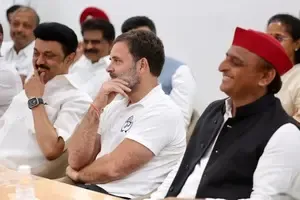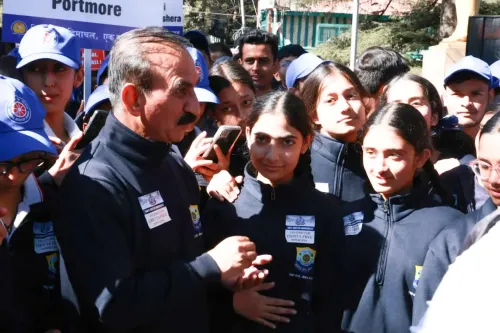When Will the India-EFTA Trade Pact Become Operational?

Synopsis
Key Takeaways
- India-EFTA TEPA launches on October 1
- $100 billion investment over 15 years
- One million direct jobs expected
- Tariff reductions on EFTA goods
- Mutual recognition of professional services
New Delhi, Sep 29 (NationPress) The Trade and Economic Partnership Agreement (TEPA) between India and the European Free Trade Association (EFTA) is set to officially commence on October 1. This agreement involves a four-nation bloc made up of Switzerland, Norway, Iceland, and Liechtenstein.
Through this agreement, the EFTA nations have pledged an investment of $100 billion over the next 15 years, which is expected to generate one million direct jobs in India.
A formal ceremony will be held at Bharat Mandapam to celebrate this milestone. Commerce and Industry Minister Piyush Goyal along with ministers from the EFTA countries will lead the event, which will also see attendance from senior officials and industry leaders.
The TEPA was initially signed on March 10, 2024, but its implementation awaited the necessary procedural approvals from the member nations, which took some time.
Under this agreement, EFTA will provide access to 92.2 percent of its tariff lines, encompassing 99.6 percent of India’s exports to the region. The EFTA’s market access offer encompasses 100 percent of non-agricultural products along with tariff reductions on select processed agricultural goods.
In return, India will provide access to 82.7 percent of its tariff lines, which covers 95.3 percent of EFTA's exports. However, duties on Gold will remain unchanged. Considerations regarding the Production-Linked Incentive (PLI) scheme in sectors like pharmaceuticals, medical devices, and processed food have been addressed while framing the offers. Sensitive sectors such as dairy, soya, coal, and certain agricultural products have been excluded from the agreement.
This pact is set to lower tariffs on various EFTA products for Indian consumers, including Swiss watches, whisky, and chocolates.
The agreement also includes provisions for mutual recognition of professional services, allowing experts in fields such as nursing, chartered accountancy, and architecture to practice in EFTA countries.
Furthermore, it addresses intellectual property rights, focusing on safeguarding India’s concerns regarding patent issues, particularly the evergreening of patents in the pharmaceutical sector.
Additionally, the agreement incorporates a sustainability clause that emphasizes labor rights, environmental protection, and human rights.
Minister Piyush Goyal has described the Trade and Economic Partnership Agreement as a “Trust and Efficiency Partnership,” highlighting a relationship based on mutual trust and complementarity. He expressed hope that this partnership would herald a new era of collaboration between India and the EFTA nations, paving the way for enhanced trade, investment, and innovation.









